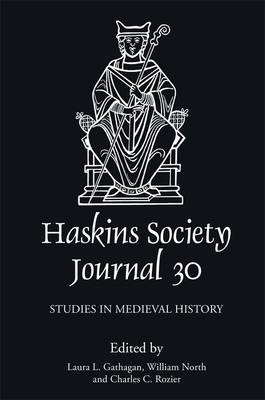
- Retrait gratuit dans votre magasin Club
- 7.000.000 titres dans notre catalogue
- Payer en toute sécurité
- Toujours un magasin près de chez vous
- Retrait gratuit dans votre magasin Club
- 7.000.000 titres dans notre catalogue
- Payer en toute sécurité
- Toujours un magasin près de chez vous
The Haskins Society Journal 30
2018. Studies in Medieval History
153,45 €
+ 306 points
Description
New insights into key texts and interpretive problems in the history of England and Europe between the eighth and thirteenth centuries. This volume of the Haskins Society Journal demonstrates the Society's continued interest in a broad range of geographical contexts and methodological approaches to medieval history. Chapters include a much-needed reassessment of Ælfthryth and her place in the society and governance of tenth-century England, as well as a comprehensive survey of the conceptualization of excommunication in post-Carolingian Europe to c.1200. Further essays explore aspects of the Norman world of southern Italy, including the dynamics of political coalitions and kinship networks, ethnic identity, and material culture. The Journal continues to highlight close analyses of key primary sources, with a study of Angevin kingship in the writings of Hugh of Lincoln and Adam of Eynsham, and an examination of Ralph of Niger's Old Testament exegesis and criticism of crusading in the late twelfth century. A ground-breaking newstudy assesses the utility of colonialism as a valid model for understanding the extraction of sacred resources and relics from the crusader lands. The volume closes with a crucial reconsideration of the agency and power of medieval French peasants as attested in medieval cartularies, opening new approaches for further research into this critical and complex social group.
Spécifications
Parties prenantes
- Editeur:
Contenu
- Nombre de pages :
- 244
- Langue:
- Anglais
- Collection :
- Tome:
- n° 30
Caractéristiques
- EAN:
- 9781783274857
- Date de parution :
- 17-04-20
- Format:
- Livre relié
- Format numérique:
- Genaaid
- Dimensions :
- 156 mm x 234 mm
- Poids :
- 521 g






